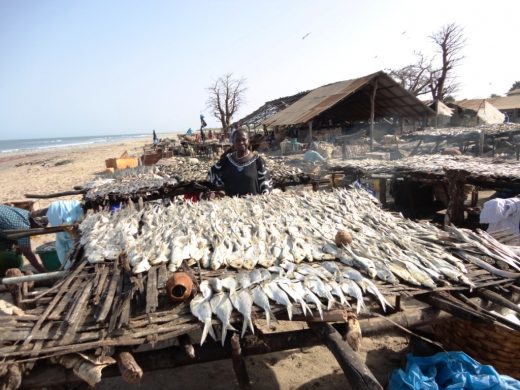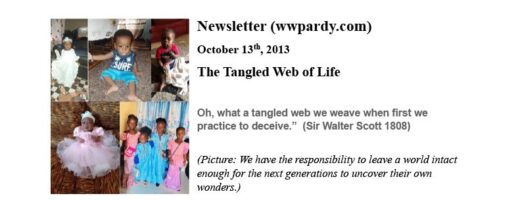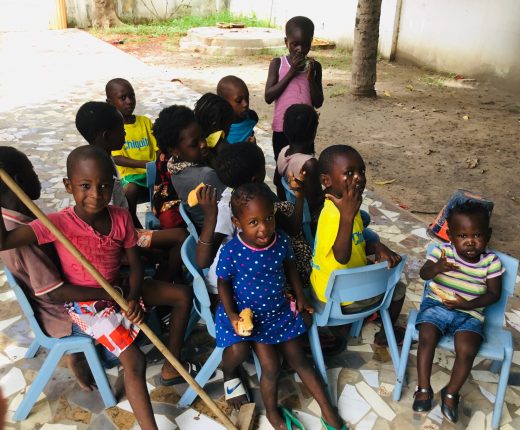
(This is how they dry fish in The Gambia. It is similar to how it used to be dried in Newfoundland. Colonies often have a lot in common – I guess the masters were the same.)
Several years ago, while at a conference in Brazil, it was my good fortune to meet a young woman doing her doctoral thesis on the lasting impacts of colonialism. Brazil had had Portugal as a colonial master. Correspondence over time and sharing ideas gave me much food for thought about my own upbringing in a former colony, Newfoundland and Labrador, and perhaps, how this shaped my own thinking and others.
Coming to Gambia, one of Britain’s last colonies, it only gained independence in 1965, has once again stirred this contemplation. My early observations provide a view, which one could certainly speculate has all the remnants of a colonial past; but with a different twist.
What first struck me was the number of developmental agencies and NGOs that are in evidence, most of which appeared to be foreign based. One could postulate that the biggest industry in Gambia has to be development agencies and non-governmental organizations.
These entities are evidenced by their often large very modern buildings and the number of large four-by-fours with names and logos of these organizations. One might think that these entities have replaced Gambia’s former colonial master Britain with a whole new wave of them.
In my very short time here, it appears obvious that so much of peoples lives in Gambia are controlled by others; mostly outsiders. This is justified as being a result of their economic circumstance. This very poor country has been severely impacted by the global financial crisis, which has driven up prices for the many commodities that they import. This is and will be exacerbated by the resultant shifts and curtailment by many countries in their foreign aid.
This proliferation in agencies and NGOs does somewhat mirror what has happened in Canada over the past few decades with the growth of developmental and other government created agencies and organizations, each with a mandate to do something for (not necessarily with) people, communities and regions. Most are now under duress through budgetary cuts to solve the deficit dilemma as a result of the same financial crisis.
It is easy to speculate that increased dependence on government funds, over the past decades may have impacted the operations of developmental organizations. In fact, it may have led to a tendency to increase local dependence in order to justify the need for the continuance of funding for these organizations and staff.
The trap for all is the necessity to maintain the level of the poor and impoverished to rationalize the assistance needed to sustain the operations that keep the support industry alive to those with need.
One could even speculate that there is some human trait to colonize others in order to gain power over them. But on the other hand, it is also human nature to strive for independence and escape from those who would hold such power. When power and control are gained over individuals or groups, those that gain that power will cling tenaciously to it.
But, dependence, like addiction, is not an easy phenomenon to change, because one of the greatest human fears is that of being alone, truly alone and not cared for. People are hard wired to be part of something. It is why family, community and some form of society are fundamentally important. It is why that while people seek escape from their dependence, they in most instances, often settle for less than genuine independence.
It is perhaps why countries like Gambia settle for less than what could be, because the promise of someone taking away some of life’s struggles is quite enticing, especially when you have little to begin with. It is also why developed countries allow governments, over time, to take away the rights others have fought for so desperately (as most developed countries are now experiencing). It is why the rich can become richer because of the promise that those in their employ and under their sway will be somehow looked after.
The truth is that much of this promise of being looked after, by others, is a myth.
Colonization at its roots is more than possession and ownership, but of cultural and personal alienation, and is not only the experience of those have been dominated by foreigners, but the experience of those who have felt the sting of rejection from their own.
To me the essence of colonialism is rooted in the inherent need by some to feel that “power over” is true power. They delude themselves (and others) into maintaining that belief, when in fact; the only genuine power is the power within.
When people gain this appreciation, as they now have in the Middle East it becomes an imperative to expose those who have held power over them, for their weakness and lack of courage. This may end, for the immediate, the colonization, but not the need to feel part of (or belonging).
Written by Bill Pardy
February 28th, 2011


